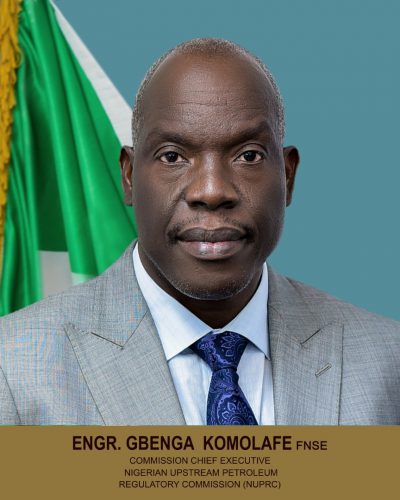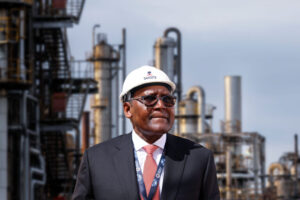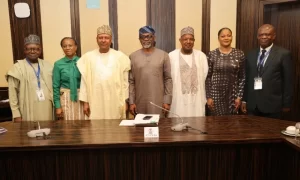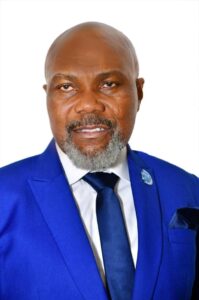
NUPRC WITHDRAWS FIVE OIL BLOCKS FROM 2024 BID ROUND OVER LITIGATION
This page is supported by Shell Nigeria. Click here for more information
As investors begin registration for the 2024 Licensing Round, the Nigerian Upstream Petroleum Regulatory Commission has removed five oil blocks from the ongoing licensing round due legal disputes.
The five oil blocks are said to be under various litigation.
The Nigerian Upstream Petroleum Regulatory Commission confirmed the development.
The affected assets are PPL3008, PPL3009, PML51, PPL267, and PPL268.
The five blocks were among the 12 initially announced by the NUPRC Chief Executive, Gbenga Komolafe, at the Miami International Roadshow for the 2024 licensing round hosted by the NUPRC in collaboration with the Petroleum Technology Association of Nigeria and Zetse Advisory & Consulting.
The 12 oil blocks initially listed by Komolafe were PPL 300-CS; PPL 301-CS; PPL 3008; PPL 3009; PPL 2001; PPL 2002; PML 51; PPL 267; PPL 268; PPL 269; PPL 270; and PPL 271.
However, while announcing that the assets on offer would be increased, the NUPRC said five others were removed because of legal disputes.
“Due to newly acquired data from the Multiclients, the Assets on offer in the ongoing Licencing Round will be increased.
“However, PPL3008, PPL3009, PML51, PPL267, PPL268 have been removed from the Bid process due to ongoing litigation,” the NUPRC said in a notice.
The NUPRC added, “Also, in accordance with the published guidelines, we have earlier indicated that some of the assets on offer should be applied as a single unit, namely: PPL 300-CS & PPL 301-CS, PPL 2000 and PPL 2001.”
Officials of the commission did not reply to inquiries from our correspondent on who the litigants are and the reasons for the litigation.
Our correspondent reports that the commission did not indicate whether or not the five affected assets are out of the 17 on offer.
Meanwhile, the NUPRC boss had in a statement announced the addition of 17 deep offshore oil blocks to the 2024 licensing round.
“In pursuit of the commission’s commitment to derive value from the country’s abundant oil and gas reserves and increase production, the commission has been working assiduously with multi-client companies to undertake more exploratory activities to acquire more data to foster and encourage further investment in the Nigerian upstream sector.
“As a result of additional data acquired in respect of deep offshore blocks, the commission has added 17 deep offshore blocks to the 2024 Licensing Round,” Komolafe said in a statement recently.
The NUPRC boss also stated that to allow interested investors to take advantage of the expanded opportunities, the 2024 Licencing Round schedule had been amended.
He said, “Registration/submission of pre-qualification documents which was initially scheduled to close on June 25, 2024, has been extended by 10 days and will now close on July 5, 2024.
“Data access/data purchase/evaluation/bid preparation and submission which was initially scheduled to open on July 4, 2024, and close on 29/11/24 will now start on July 8, 2024, and close on 29/11/24 as previously scheduled.
“All other dates in the published 2024 licencing round schedule remain the same unless otherwise communicated.”
During the pre-bid conference held recently in Lagos, it was announced that President Bola Tinubu had reduced the signature bonus payable by successful bidders from around $200m to $10m.
According to Komolafe, the NUPRC surveyed what other countries like Brazil demand as signature bonuses from would-be investors and discovered the need to slash that of Nigeria.
Komolafe maintained that a heavy signature bonus is a front entry barrier in the Nigerian oil sector and the reason many have not been able to develop assets awarded to them.
Henceforth, the NUPRC disclosed that an investment in deepwater will now attract $10m as a signature bonus while shallow water and onshore will attract $7m.
To qualify for the bid round, the NUPRC Assistant Director, Multiclient Surveys and Regional Studies, Ahmad Abdullahi, disclosed that interested bidding organisations must possess a financial capacity of about $200m for deep offshore and $150m for shallow water and onshore.






